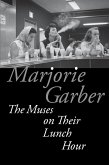Mrs. Warren's Profession is a play written by George Bernard Shaw in 1893, and first performed in London in 1902. The play is about a former prostitute, now a madam (brothel proprietor), who attempts to come to terms with her disapproving daughter. It is a problem play, offering social commentary to illustrate Shaw's belief that the act of prostitution was not caused by moral failure but by economic necessity. Elements of the play were borrowed from Shaw's 1882 novel Cashel Byron's Profession, about a man who becomes a boxer due to limited employment opportunities. Vivie Warren, a thoroughly modern young woman, has just graduated from the University of Cambridge with honours in Mathematics (equal Third Wrangler), and is available for suitors. Her mother, Mrs. Warren (her name changed to hide her identity and give the impression that she is married), arranges for her to meet her friend Mr. Praed, a middle-aged, handsome architect, at the home where Vivie is staying. Mrs. Warren arrives with her business partner, Sir George Crofts, who is attracted to Vivie despite their 25-year age difference. Vivie is romantically involved with the youthful Frank Gardner, who sees her as his meal ticket. His father, the (married) Reverend Samuel Gardner, has a history with Vivie's mother. As we discover later, he may be Vivie's out-of-wedlock father, which would make Vivie and Frank half-siblings. Mrs. Warren successfully justifies to her daughter how she chose her particular profession in order to support her daughter and give her the opportunities she never had. She saved enough money to buy into the business with her sister, and she now owns (with Sir George) a chain of brothels across Europe. Vivie is, at first, horrified by the revelation, but then lauds her mother as a champion. However, the reconciliation ends when Vivie finds out that her mother continues to run the business even though she no longer needs to. Vivie takes an office job in the city and dumps Frank, vowing she will never marry. She disowns her mother, and Mrs. Warren is left heartbroken, having looked forward to growing old with her daughter.
Bitte wählen Sie Ihr Anliegen aus.
Rechnungen
Retourenschein anfordern
Bestellstatus
Storno









